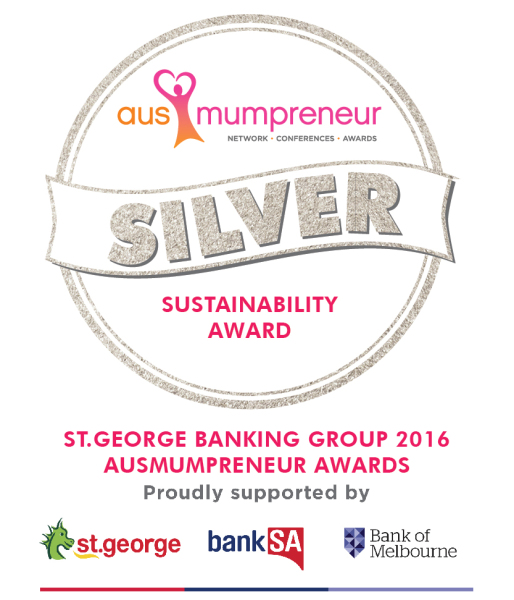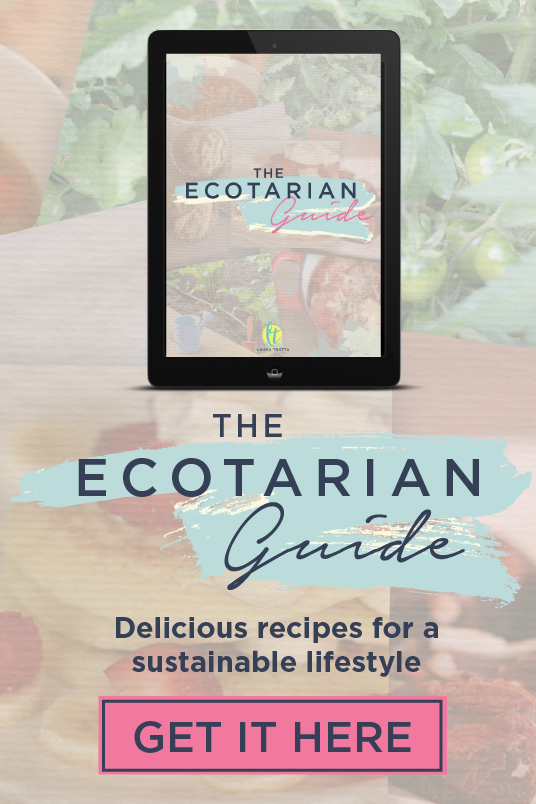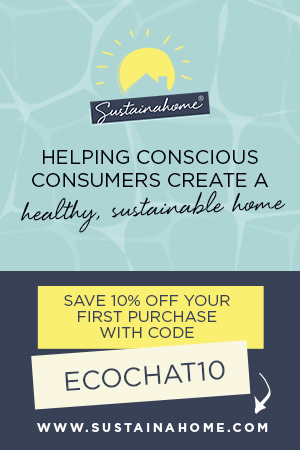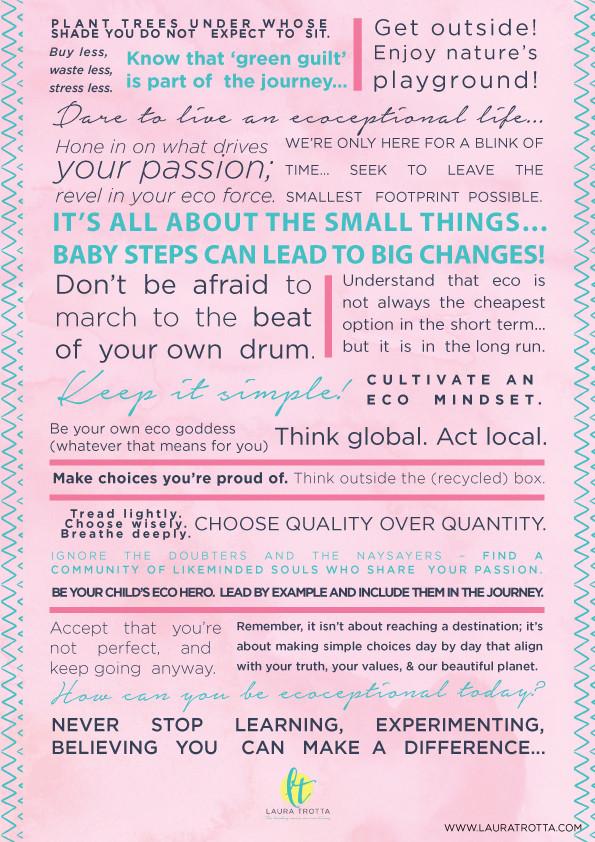How to Improve Your Kids Gut Health
Gut health is the foundation of good health and this also very true for children. Many childhood health issues such as asthma, eczema, ADHD and autism spectrum disorders have been linked to poor gut health.
In this episode of Eco Chat, paediatric naturopath Jessica Donovan is here to tell us more about how we can improve our kids gut health. so they can thrive in our modern world.
Podcast: Play In New Window
Subscribe in Apple Podcasts | Stitcher | Spotify
If you’re keen for more information and support, download Jess’s FREE Kids Gut Health eBook
Resources
Natural Super Kids on Facebook
Interview Transcript:
Why should we be concerned about the health of our children’s gut?
Jess:
In naturopathy we’re always talking about the gut being the foundation of everybody’s health. And this is even more true when it comes to our kids. So when we think about it, our gut is crucial in terms of making sure we’re absorbing all of the nutrients that we need from our diet. It’s really important to make sure that we’re eliminating all our waste out of our body. And it’s got so many different functions when it comes to our kid’s health as well. So it’s an important part of our kids’ immune systems. It’s a very important part of immune regulation as well. So it helps to improve allergic tolerance, which we’ll talk a bit more about today as well. It helps to … Or it helps with their appetite and their food preferences, with their mood, their behaviour with their sleep.
The gut is so foundational for so many of the different things that our kids’ bodies need to do. I find that the gut-brain axis sort of information really interesting. And that’s I guess important to note when we’re talking about mood, behaviour and sleep. Because a lot of people think, “Well, how can our gut be related to our mood?” But there’s really more and more interesting research coming out about the gut-brain axis.
So the gut and brain are actually connected by the vagus nerve. And the bacteria in our gut actually communicate with our brain. And so this is really important when it comes to neurotransmitter production. So a lot of the neurotransmitters that affect our kids’ behaviour, their sleep, their mood, are actually produced within the gut. So if we’ve got a nice healthy gut, then that neurotransmitter production is going to happen in a healthy way. And if we don’t have a healthy gut, then there’s going to be imbalances to those neurotransmitters. So the gut really is foundational for all of these different areas of our kid’s health.
Laura:
And I guess our health as well. Is it even more acute in our kids? Does it play a bigger role? Or is it just because kids are smaller and it can impact them even more? Or is it pretty much the same as adults?
Jess:
Yeah. Well, all of these things are applicable to adults as well. But our kids’ gut is still … It’s still being created. Their microbiome within the gut, it’s immature, if you like. And so different diet and environmental aspects have more of an impact on our kids than they do on us as adults.
What are some of the things that impact on our children’s gut health?
Laura:
Oh, wow. Yep. That totally makes sense. Now, let’s just chat about some of those things that do impact our kids’ health. What are some of these things? And what impact for example, do things like toxins in our home and in our general environment play in our children’s gut health?
Jess:
Yeah. This is a really interesting area as well. So there’s a lot of different things within our modern diet and environment that affect our health and our kids’ gut health. And a lot of them are having a detrimental effect on our kids’ gut health. So I mean first of all, there’s diet. So our kids are now eating more sugar and more processed foods that are lacking in fiber than they ever have before. So this is having a detrimental impact. Things like pesticides and additives in our food can have a detrimental impact on our kids’ gut health. Certain medications, antibiotics. But there’s lots of other medications like steroids and the oral contraceptive pill, which I know our kids aren’t taking. But us moms are often taking, can all deplete the health of our guts. And when it comes to chemicals and toxins in our homes and in our environment, I guess the big one to be conscious of are the antibacterial products.
So the hand washers and the hand sanitizers, and the cleaning sprays. The chemical cleaning sprays that are on all of the ads that make moms feel like if they’re not using these sprays, then their homes aren’t going to be hygienic enough. So all of these antibacterial products by their very nature, they’re antibacterial. So when our kids are ingesting these or exposed to these, then it’s going to be killing off the good healthy bacteria within their gut. Which is going to be having a detrimental effect on their gut health.
So really overall, as we’ve become more sanitized and more hygienic as a society in modern world, our kids are having a much lower exposure to microbes. And microbes are what helps to develop their gut. And so when we’re kind of getting rid of all the bacteria in the environment, and our kids aren’t playing outside as often as they used to, so they’re not getting exposure to those bugs in the soil, and other ways that they get exposure to those bugs outside. It’s really affecting the diversity of their microbiome. So kids these days have a much narrower diversity than they ever have before. And that lack of diversity is a problem. It’s been linked to eczema and asthma, and allergies, and ADHD, and autism. Of course, it’s only one piece of the puzzle when it comes to these chronic health conditions. But it’s an important one to be thinking about.
Laura:
For sure. In all of those conditions, the incidents of them in our population are on the rise too.
Jess:
Yes, they are. The big five. The big five chronic health conditions in kids are eczema, allergies, asthma, autism, ADHD. It’s scary how much they’re rising. And of course there’s lots of factors in that. There’s better diagnostic procedures, there’s more awareness and that sort of thing. But our diet and lifestyle is definitely having a part to play.
Laura:
One thing that you didn’t mention that I wouldn’t mind raising, just because I’m a mom of two caesarean babies. And what was interesting to me, and I knew this leading into childbirth as well, that obviously a child born by caesarean section won’t have the benefit of ingesting all the bacteria as it would if it was going down the birth canal, that lines it’s gut and primes it as it comes into the world. So children born by caesarean section are really on the back foot when it comes to gut health right from the start, because they haven’t had that journey. And of course I’ve got two boys both born by caesarean section as they were breach and transverse lie, and just not getting in the right position. And quite risky pregnancies. But that was just another thing as a caesarean thinking, “Oh, they’re already on the back foot. I’m doing everything I can to catch them up.” But I was aware of that.
Jess:
I’m so glad that you brought that up, because the way that our babies are born, like you said, C-section babies don’t get exposure to all of that beneficial … Mum’s beneficial microbes as they’re coming down through the birth canal. And also the way our babies are fed. So breast milk contains lots of really important substances for our kids’ gut health as well. And you know as mum, this can create a lot of guilt for all sorts of reasons. Women are having C-sections these days or aren’t able to breastfeed, or are choosing not to breastfeed. But I guess just being conscious of this means that we can start to make up for it in some of the strategies that I’m going to be talking about today. And kids that are born C-section or haven’t been breastfed for a decent period of time are definitely on the back foot. So we need to I guess, make up for that in other ways.
How do we know if our child has poor gut health?
Laura:
Before we talk about how to make that up, would you mind just letting us know how can we tell if our child has poor gut health? What are some of I guess, the red flags or the symptoms we should be looking out for? What’s some of the signs?
Jess:
Yeah. So good question. And there can be lots of different signs and symptoms that can be related back to gut health. I guess the first thing or the most important thing is to try and keep and keep an eye on their poo. And this can get harder as they get older. My kids are now nine and 11, and they’re horrified if I look at their poo now. Much easier when they’re little, and we’re still wiping bums and changing nappies. But you know the, you can get your kids involved as they get older in looking at their own poo and knowing what to look out for. But there’s a chart that you can easily Google the Bristol Stool Chart, which shows you what a healthy poo sort of looks like. But generally, we’re looking for daily bowel movements that are formed, that are smooth, that are medium brown.
If we’re going sort of the other way where bowel movements might be hard to pass, or be infrequent and dry, and dark with cracks in them, that can sort of tell us that the transit time is too slow. Generally these kids that need more meat, more fibre, and more prebiotic fibres, which I’ll talk more about. Or then of course it can go the other way, where everything’s going through too fast and the bowel movements aren’t formed. They’re frequent. They might be sort of blob looking or loose. And this can mean that our kids potentially have food intolerances, or some sort of an imbalance in the bacteria in their gut, or some sort of irritation. So looking at the poo is a good first step in determining whether our kids have got good gut health. And digestive symptoms are another one to look out for. So tummy aches or constipation, or excess wind. That sort of thing. Reflux. All of these are signs that gut isn’t functioning as well as it could. And it needs a bit of extra attention.
Are fussy eaters more or less likely to have compromised gut health?
Laura:
Are fussy eaters, are they more or less likely to have compromised gut health? Or does one cause the other, or they’re both … Which comes first?
Jess:
Yeah. Good question. And it can be tricky which comes first. It’s sort of like the chicken or the egg scenario. But yes, a big contributor to fussy eating is poor gut health, particularly dysbiosis, which means an imbalance in the good and bad bacteria within our gut. So we get an overgrowth of the bad bacteria, and we don’t have enough of the good bacteria in there. And when we’ve got this dysbiosis, it can lead to cravings or more preferences for sugary, more refined, the white bread, the bland plain sort of food.
So that gut balance is a big contributor when it comes to our kids’ food preferences and appetite. But at the same time, if our kids are fussy and they’re not eating enough of the good foods with the types of fibre that feed the good bugs within our digestive system, then that can lead to gut health problems as well. So it’s a bit of a negative cycle. But if your kids are fussy, picky eaters, again it’s another sign that their gut health needs a bit of extra attention.
Laura:
I know we’re in that category right now. I’ve got a carb junkie, he’s my beige kid. I mean, he still eats a heap of steamed veggies at night. But if he had his own way, he’d have he calls it pasta blank, “I’ll have a scone blank.” Like everything’s just-
Jess:
Just plain.
Laura:
Just plain. But to the point where he won’t even try new things. Now of course we’re going down the line of working on his gut health. He’s my Mr. Caesarean baby. He used to have a lot of chronic ear infections. But yeah, I mean there’s lots of things we’ve done along the way. He’s lived in a toxin-free home. He was breastfed. Lots of great things. But like I said, he started on the back foot, and a few other things haven’t gone his way. So maybe if we can turn him into a rainbow kid, I don’t know.
Jess:
Yeah. And again, gut health is only one part of the puzzle. I mean, there can be sensory issues when it comes to food where kids have certain preferences because of their sensory preferences. Or they’ve got some issues with sensory processing. So there’s lots of factors involved. But yeah, building up gut health can make a big difference. I’ve seen this in clinic where we’ve been working on gut health issues for certain symptoms. And kids become more varied sort of eaters as a result. So it’s definitely worth putting some attention in that area.
What health conditions or symptoms typically improve when we work on our children’s gut health?
Laura:
I know we’ve mentioned some health conditions, but I think you talked about the top five. But what are the typical health conditions or symptoms that we see improve when we do work on our children’s gut health?
Jess:
Yeah. There can be lots of different improvements. We can see improvements to our skin … To our kids’ skin, even if they don’t have a skin condition like eczema. But we can see some improvements to their skin and the way that they look, getting rid of those dark circles under their eyes. Mood and behaviour can be a big one. Concentration and learning. And then their immunity is a big one as well. So kids that are getting sick a lot during the winter or any time, really off. I see lots of these kinds of kids in clinic and have lots of these kinds of families in my online membership as well that are getting sick all of the time. And when we start to focus on building up gut health, that really improves.
So if your kids are getting sick all the time … Of course kids, it’s normal for them to get sick. But they should bounce that pretty quickly. And they shouldn’t be sick all winter long. So if they are, again it’s something that we need to think about in terms of gut health.
How can we improve our children’s gut health? Where should we start first?
Laura:
So how can we improve our children’s gut health? Where’s a good place to start?
Jess:
Yeah. So there’s lots of things that we can do. And because as I’ve said, there’s lots of things within our modern diet and environment that are having a detrimental effect on our kid’s health, kids’ gut health. So if we can focus on daily habits or weekly habits to boost our family’s gut health overall, then I think that’s a really good thing to be doing. So we want to be avoiding … I like to think about gut health as a bit of a garden, sort of use a garden analogy.
So we want to avoid things that are going to sterilize our kids’ gut health garden. So there an over consumption of things like sugar and processed food, and using those antibacterial chemicals in the house. And trying to reduce things like pesticides and additives in our kid’s diet as well. All of these things definitely add up. So we want to avoid the sterilizers. And then we want to look at a seed and feed approach. So we want to seed our kids’ gut health with probiotics, with the healthy bacteria. And this can be done with supplements, probiotic supplements. It can be done with fermented foods such as sauerkraut or coconut kefir, or kombucha. So we’re getting those good bugs in through those different dietary strategies. And also lifestyle exposure is really important as well. And the big one here is just getting our kids outside more, so they’re getting exposure to more environmental microbes that help to seed their gut. So we want to be putting those good bugs in, in those different ways.
And then this part is often overlooked. We want to make sure that those good bugs are being fed. And the best way to do this is to make sure that there’s plenty of prebiotic fibres in our kids’ diets. So all vegetables and salads, and some whole grains contain prebiotic fibres. But things like garlic and onion, and leek, bananas. Particularly bananas on the green side are really high in prebiotic fibres. Oats and rye, and lentils are all high in prebiotic fibre. So we want to be trying to increase these kinds of foods in our kids’ diets. This can be tricky with fussy or picky eaters, but a really good prebiotic source that a lot of kids, most kids will eat is cooked and then cooled potatoes, rice, and pasta. So when we cook and cool potatoes, rice and pasta, the prebiotic fibres increase in those foods. So this could look like some cold pasta salad or potato salad in the kid’s lunchbox. So those are the things that we really want to focus on when it comes to the seed and feed approach to our kids’ gut health.
Laura:
That’s interesting. Even just a cold baked potato in lunchbox, things like that. My beige kid would eat that.
Jess:
Exactly. Yes. And that’s a really good way to get started with those beige kids, because those foods are often well liked by them.
Laura:
Oh, and I love leeks. Leek is such an underrated vegetable. It’s one of my top favourite. I pop it in all my soups and any casserole. It just can turn any average casserole into a super creamy. Leeks are amazing, aren’t they?
Jess:
Such good flavour, haven’t they? I agree. They are definitely undervalued. And things like garlic, onion and leek. You can put in almost anything, in any sort of spaghetti bolognese, you can add some extra onions and garlic. And even fussy kids will generally quite like that. And into soups and casseroles, like you said. Yeah.
Laura:
I think I agree what you said, those prebiotic foods are something that … I mean, me as well as a busy mom, you kind of miss off out of the piece of the pie. But yeah, they don’t sound too tricky at all to be able to do.
Jess:
No. And another one that we’ve been doing more recently with the warmer weather, we’ve been having smoothies. So we’ve been adding a powdered green banana starch into smoothies. It doesn’t have much of a taste at all, but that’s one of the great … A really great option for prebiotic fibres. So you can get green banana flour that you can use in baking. And you can get green banana starch that you can add to things like smoothies. And again, even if your kids are only having a chocolate milkshake, you can quite easily add some of that into something like a chocolate milkshake without them noticing.
Laura:
Yeah. It’s really about sneaking some of these foods in. We’ve used some of that green banana flour just to make pancakes. And they’ve gone down well.
Jess:
Yeah, yeah. Exactly. So it’s like I said, it’s switching a few little switches here and there. And implementing these things regularly into our family’s diet can make a big difference. You can just mix a bit of the green banana flour into your pancakes if you’re worried about whether your kids would eat them. And start slow with kids with changes. I think if you change too much, kids will often not be up for that. But if you make small changes, and like you said, I think it’s a good balance of hiding some things into foods that they already like. But then trying to expose them to more different varieties of vegetables and things quite clearly as well. I think a combination of those two things works well.
Where can our listeners go to find more information on raising healthy kids?
Laura:
Well, that’s all amazing information. And so, so useful, Jess. So would you mind sharing where our listeners can go to find some more info on I guess improving our kids’ gut health. But also just on raising healthy kids in general. Because I know you’ve got a swag of resources.
Jess:
Yeah. So I’ve got a little gift for your listeners, Laura. Which is my Gut Health For Kids ebook. So it pretty much goes through a lot of the things that we’ve talked about today. But it will be a good reference for people to go back to after listening to what we’ve been talking about. So it talks about the sterilizers to avoid, and the seed and feed approach, and why our kids’ gut health is so important. So anyone listening can download that for free here.
And then my website is naturalsuperkids.com. And we have lots of information on kids’ health over there. Lots of information on kids’ gut health as well. So I do a weekly Facebook live show that gets converted into a blog post. So there’s all kinds of different topics that we cover relating to kids’ health over there. And I have an online membership program called the Natural Super Kids Club. And we open that a couple of times a year to new members. So anyone who downloads the gut health ebook will be informed of when we open. We’re opening in October, 2019. Right at the end of October. And we’re opening again next year, early next year. So that in there, we provide recipes and meal plans, and little short sharp videos, cheat sheets. So the club is all about making it easy for busy moms to raise healthy kids in the modern world.
Laura:
Yeah. It’s fabulous. And of course, we’ve worked together for quite a few years now. And known each other and become good friends too. And I really highly vouch for the quality of work that you do, Jess. It’s great to see you helping more and more families, and improving the health of more and more children worldwide. It’s wonderful to see. And for the listeners, I’ll definitely pop the links in the show notes so you can just click straight through from Podcast Addict, or Apple Podcasts straight through to Jess’s resources. That’d be fabulous. So thanks so much for coming onto Eco Chat today, Jess. It’s been wonderful to have you share your wisdom with my listeners.
Jess:
Thank you so much. I’ve loved chatting to you. And I hope that people listening have got some value out of what I’ve shared today.
Like this post? You’ll also love:
How to Raise Healthy Kids in a Modern World
Raising Kids in a Digital World Part 2 – Gaming and YouTube
Raising Kids in a Digital World Part 1
How and Why Kids Need to Play Outdoors
Resources
FREE Natural Super Kids Video Training Series
Natural Super Kids on Facebook
- Sustainable Home Design- factors to consider to maximise sustainability - July 28, 2022
- Advantage and Disadvantages of Tiny Houses - May 31, 2022
- How School Strike 4 Climate is Empowering Youth to Fight for Their Future - May 1, 2022

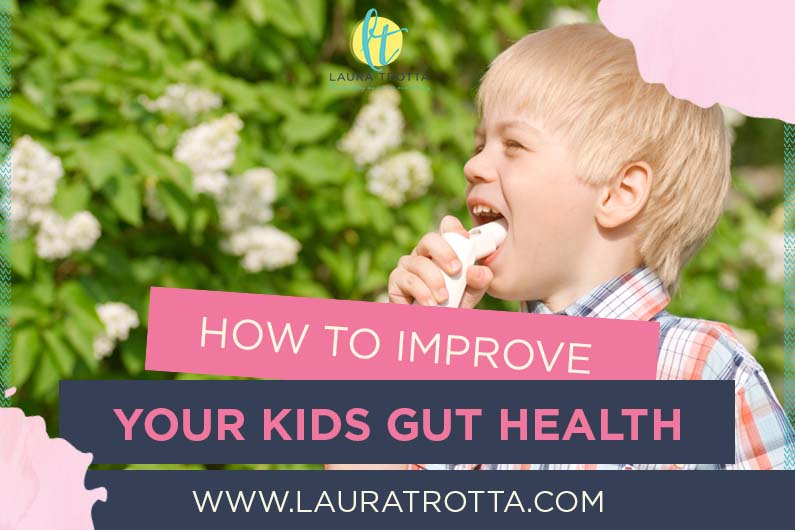
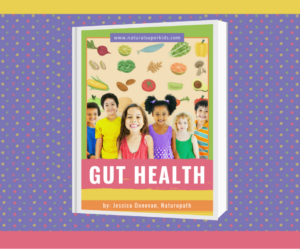
 Laura Trotta is one of Australia’s leading home sustainability experts. She has a Bachelor of Environmental Engineering, a Masters of Science (in Environmental Chemistry) and spent 11 years working as an environmental professional before creating her first online eco business, Sustainababy, in 2009. She has won numerous regional and national awards for her fresh and inspiring take on living an ‘ecoceptional’ life (including most recently winning the Brand South Australia Flinders University Education Award (2015) for the north-west region in SA and silver in the Eco-friendly category of the 2015 Ausmumpreneur Awards). With a regular segment on ABC Radio and with her work featured in publications like Nurture Parenting and My Child Magazine, Laura is an eco thought leader who’s not afraid to challenge the status quo. A passionate believer in addressing the small things to achieve big change, and protecting the planet in practical ways, Laura lives with her husband and two sons in outback South Australia.
Laura Trotta is one of Australia’s leading home sustainability experts. She has a Bachelor of Environmental Engineering, a Masters of Science (in Environmental Chemistry) and spent 11 years working as an environmental professional before creating her first online eco business, Sustainababy, in 2009. She has won numerous regional and national awards for her fresh and inspiring take on living an ‘ecoceptional’ life (including most recently winning the Brand South Australia Flinders University Education Award (2015) for the north-west region in SA and silver in the Eco-friendly category of the 2015 Ausmumpreneur Awards). With a regular segment on ABC Radio and with her work featured in publications like Nurture Parenting and My Child Magazine, Laura is an eco thought leader who’s not afraid to challenge the status quo. A passionate believer in addressing the small things to achieve big change, and protecting the planet in practical ways, Laura lives with her husband and two sons in outback South Australia. 